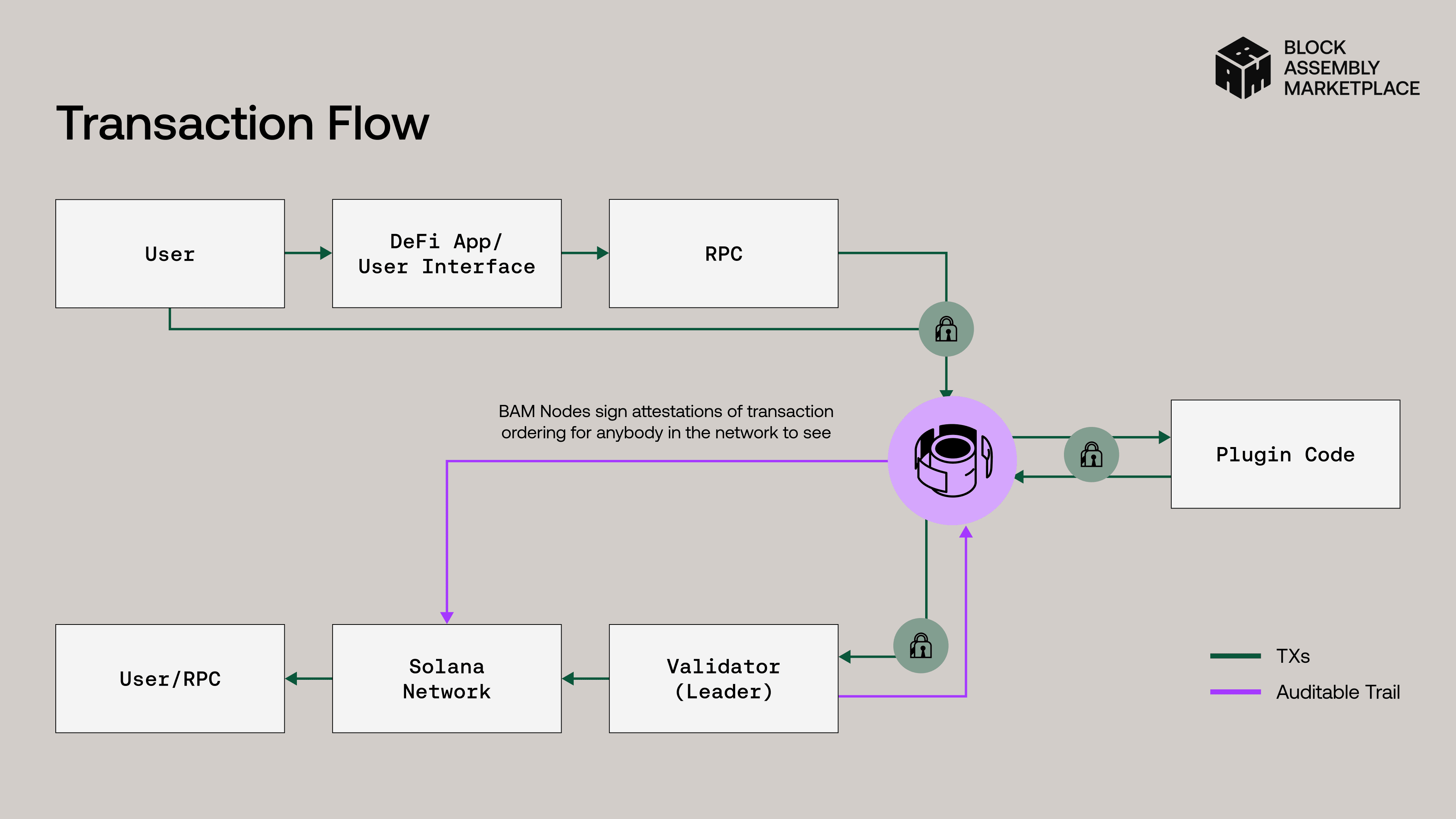On July 21, Jito Labs announced a proposal to build the Block Assembly Marketplace (BAM) – a new transaction ordering system that enables developers to deploy a central limit order book (CLOB), perpetual exchanges, and dark pools on Solana without changing the underlying protocol. Jito proposes the block market to transform Solana into a 'decentralized Nasdaq.'
BAM System: Maintain privacy, ensure auditability
The design of BAM introduces a network of BAM Nodes operating in parallel with current validators. These nodes will sort transactions encrypted in Trusted Execution Environments (TEE) – secure execution environments – and send them to the leader along with cryptographic proof validating the integrity of the order.
BAM validators running the updated Jito-Solana client will execute sorted transactions and return proof that this process was carried out correctly.
The BAM proposal sets three technical objectives:
Secure transaction orders until execution to limit negative MEV exploitation.
Create a transparent transaction history with a public audit trail for each transaction bundle.
Provide direct access to transaction scheduling through the Plugin system, allowing applications to self-adjust the ordering and execution of transactions.
Each Plugin can insert or reorder orders in a secure environment, catering to cases such as just-in-time oracle updates or cancel-replace operations prioritized for market makers.

Phased deployment roadmap
In the early stages, Jito will operate the first BAM Nodes while an alpha validator group – including Triton One, SOL Strategies, Figment, Helius, and others – will test the client.
The plan aims to maintain a high single-digit percentage of delegated stake immediately after launch, increasing to 30% or more as more node operators join. Jito also plans to open-source BAM, reach a milestone of 50 geographically distributed nodes, and then transfer governance to DAO.
According to Jito, BAM will deliver two key factors that organizations and high-frequency traders (HFT) demand: deterministic execution and verifiable privacy.
By allowing custom transaction ordering without the need for a private mempool or off-chain agreements, BAM can attract order flow currently shifting towards centralized exchanges.
Jito believes that with the current throughput of Solana, this network can fully become a decentralized Nasdaq, as plugins for perpetual and dark pools are deployed.
Ultimately, Jito Labs plans to propose a vote to transfer all BAM fees and block engine to the Jito DAO treasury, while the company continues technical operations. This approach is believed to shift value from MEV exploitation to revenue sharing through transaction scheduling services.
Currently, the BAM plan is awaiting feedback from validators, developers, and holders before entering the actual product testing phase.